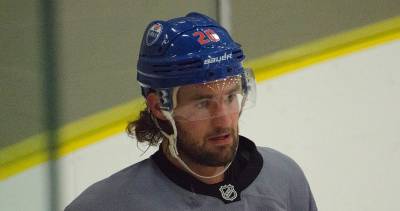Filming Mount Pleasant
Stories, needles litter the landscape of Ross Weber’s neighbourhood
At the start of Mount Pleasant, which opens here on Friday (January 26), a young homeowner is shocked to discover his new neighbourhood’s drawbacks. Bad enough that there are teenage prostitutes climbing into SUVs, but aren’t those needles lurking in the lawn?
Similar discoveries triggered the latest filmmaking venture of local writer-director Ross Weber, who moved into the central Vancouver neighbourhood of the movie’s title about six years ago. Coming off his critical, if not financial, success with No More Monkeys Jumpin’ on the Bed, Weber and his partner, producer Kimberley Wakefield, took on “the cheapest house in Vancouver”, as he put it in conversation during last fall’s Vancouver International Film Festival and, more recently, on the phone from his home.
Weber had previously made his living editing other people’s films, such as Bruce Sweeney’s keenly observed comedies of bad manners, Dirty and Live Bait. More recently, he cut Moving Malcolm for actor-turned-director Benjamin Ratner—who plays the needle-finding newbie in Mount Pleasant—and Ori Kowarsky’s Various Positions, a vehicle for young actor Tygh Runyan, who turns up as one of the main hypodermic litterers here.
For the filmmaker, venturing into real estate meant both a chance to embrace his need to write full-time and an opportunity to reexamine issues about urban living.
“Well, for the first six months, renovating was a full-time job. The place was so rundown. We couldn’t tolerate the rules that go with living in a condo, so we started looking at junky houses.”
More than that, they found a house in a neighbourhood with plenty of junk.
“I was working on the basement and would go outside to have a cigarette and started noticing these really stoned teenage girls staggering down the alleyway behind the house. I mean, they were clearly prostitutes and obviously on drugs, and my first thought was, ”˜Should I tell Kim?’ We hadn’t moved in yet. Anyway, we did move in and went to neighbourhood meetings, and I started taking notes, because there were some pretty interesting characters hanging around in the streets. I didn’t have any idea if I would ever write anything [about those characters].”
Weber even went on some neighbourhood-watch patrols, such as those depicted in the film, and his fascination with the area grew. Monkeys was highly improvisational, with actors workshopping their characters into the story, Mike Leigh–style. But the householding experience led to an outflow of structured storytelling.
“This time, I ended up writing a treatment, which I never do. I wrote it in a day, and that was pretty much the script for the couple of years to fund it.”
For Weber, the story of three couples crossing paths in this transitional neighbourhood wasn’t full of epiphanies as much as it was a revisiting of earlier experiences with our seedier side.
“I had lived on the Downtown Eastside,” he recalled. “And this was nothing compared to living down there.”
Mainly, Weber liked the idea of untangling “a pileup of stories” about people at the edges of society. Monkeys also displayed a gritty urban panache, but here he worked with more concentrated, if not overly polished, material.
“I guess the connection is that I’m always looking for something real. Of course, you start writing and then other factors take over, and I guess that’s the nature of filmmaking in quite a few countries. You have to maintain your intention while accommodating the realities of the business.”
Where the black-and-white Monkeys was made for favours by a local cast on a nonexistent budget, Pleasant had name actors flown in for a more carefully constructed project.
“In the end, though,” Weber said with a laugh, “I shot Monkeys in 19 days and, even with a lot more money, I shot Mount Pleasant in 19 days.”
With Mount Pleasant, though, he was working with 35mm film and actors who were all wanted elsewhere. And the movie had more stylistic considerations, such as cinematographer A. Jonathan Benny’s complex colour palette and sound design and all the trucks and trailers that go with that level of work. In the end, what unites the two features—aside from smartly overlapping dialogue and characters with only a passing grasp of themselves—is Weber’s relationship with the actors.
Here, with Ratner starring opposite Intelligence’s Camille Sullivan, Runyan matched with former child star Katie Boland, and Kelly Rowan and Shawn Doyle squaring off as unhappily married social strivers, the film is built around an ensemble of equals, with no one allowed to hog screen time. Even so, the standout is Doyle, with his portrayal of a dad who divides his attention between Boland’s teen hooker and his troubled daughter, played by impressive youngster Gen vieve Buechner (best known as the title character in the indie flick Saint Monica).
Doyle and Rowan were in Vancouver for the film’s debut screenings in October, and they were unequivocal in their praise for Weber’s direction and the challenge of finding just the right tone for such screwed-up characters.
For Rowan, the tightly wound character, less interested in love than in material security, came across naturally on the page.
“We didn’t get a lot of time for rehearsal,” she told the Straight the day the film showed. “But Ross showed a tremendous amount of trust in our ability to find what he was looking for quickly. Basically, we talked it through, and then there was just enough latitude to try slightly different approaches.”
For Doyle, it required more effort to portray a buttoned-down borderline pedophile with unresolved feelings toward his wife and daughter.
“It was tough,” he recalled. “I really had to talk that sucker through, and Ross was willing to go the extra mile to get something that was always going to be tricky, no matter how well we pulled it off. I mean, I didn’t want the guy to be a monster, but I never wanted to let him off the hook, either.”
Weber’s relatively expensive solution, as he explains it now, was to film Doyle taking several passes at the part and then assemble the best combination of moods.
“We actually went less dark in the end,” the director explained. “He said, ”˜I can give you six or seven different gradations, each a little more evil’—and he is that good an actor—so we did very subtle differences from take to take.”
The film itself reflects that subtlety, with the viewer’s allegiances constantly shifting, depending on who is on-screen.
“Where I get my most pleasure out of filmmaking is definitely working with the actors,” Weber revealed. “I just wish I could make one [movie] where I have a whole pile of time. With the actors I had for this one, you could really do something incredible if you could have, say, 19 days just to rehearse. I would really have let them go: to use the script as a base, let them develop the story, and then spend a couple of weeks rewriting. As it is, I didn’t have time to have a cup of coffee with them.
“I guess it’s in my nature to complain a lot—” Weber interrupted himself with a Harvey Pekar–like sigh, then gave a quick chuckle. “But that doesn’t alter the fact that getting to make a film at all is like winning the lottery. In my case, when I find out I’m going to get some funding, I have to freak out for a while, saying, ”˜Holy shit, now I have to make a movie.’ ”
Currently, he’s gearing up for a panic over Trip to Heaven, a new script he’s writing about bullying among teenage girls. (The title refers to a mutual-choking game that sounds absolutely charming.) And he’s been watching his neighbourhood change, going through “the usual ebb and flow” of an in- between place gradually being gentrified. Weber hasn’t been on any watch patrols lately, but at least now the area can watch itself on-screen.















Comments